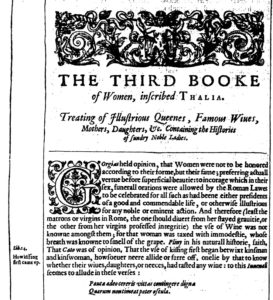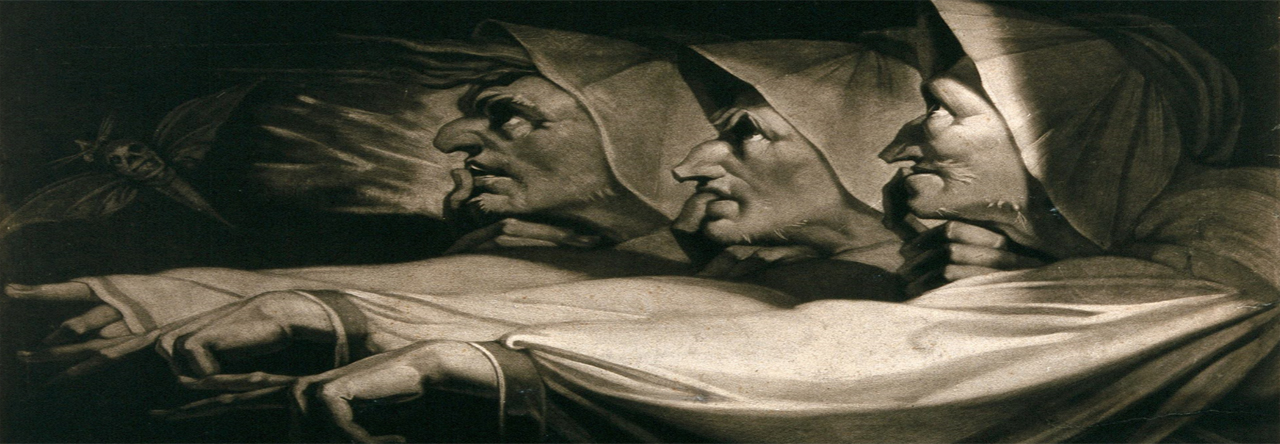[Happy New Year — 2020 — to you all! I decided to launch a series of posts under the category of Footnote Fodder containing tidbits from my readings that I find curious and genuinely interesting but have, as of yet, no way to incorporate in any of my publishing projects. They seem too good/bizarre not to share. Enjoy! ;)]
If your brain is anything like mine then you are sometimes plagued with random songs like I am. In my case, the songs materialize triggered by semantic knowledge (i.e. encounter with words reminiscent of the lyrics) and stay lodged in my brain’s auditory cortex. So, I have Thomas Heywood to blame for “The Shoop Shoop Song” running in loop on my brain. And it runs like an ironical commentary in Cher’s voice:
If you want to know if he loves you so
It’s in his kiss
That’s where it is
Whoa oh it’s in his kiss
That’s where it is.
 Why ironical? Because reading Thomas Heywood’s Gynaikeion: or, Nine books of various history concerning women inscribed by ye names of ye nine Muses (London: Printed by Adam Islip, 1624), in “The Third Book of Women, inscribed Thalia” one comes upon the alleged origin of kisses:
Why ironical? Because reading Thomas Heywood’s Gynaikeion: or, Nine books of various history concerning women inscribed by ye names of ye nine Muses (London: Printed by Adam Islip, 1624), in “The Third Book of Women, inscribed Thalia” one comes upon the alleged origin of kisses:
… the use of Wine was not knowne amongst them [the Roman matrons and virgins]; for that woman was taxed with immodestie, whose breath was knowne to smell of grape. Pliny in his natural historie, saith, That Cato was of opinion, That the vse of kissing first began betwixt kinsman and kinswoman, howsoeuer neere allide or farra off, onelie by that to know whether their wiues, daughters, or neeces, had tasted any wine: to this Iuuenall seems to allude in these verses:
Paucae adeo cereris vittas contingere Digna
Quarum non time at pater oscula. (p. 118)*
Well, if this does not throw a nasty wrench into the romantic notion about kisses. Sorry Jules, nothing personal.
Of course, Heywood is quick to dismiss the above as a custom of bygone days (and places) acknowledging that “kissing and drinking both are now growne (it seems) to a greater custome amongst vs that in those days with the Romans: nor am I so austeare to forbid the vse of either…” (ibid).
But it certainly puts the following two verses from the Song of Songs into a different perspective:
How fair is thy love, my sister, my spouse! how much better is thy love than wine! And the smell of thine ointments than all spices! Thy lips, O my spouse, drop as the honeycomb: honey and milk are under thy tongue… (4:10-11)
Also, are we talking about a French or a Roman kiss? Comment if you know. Until you come up with a veritable source, I am opting for Romance Kiss — as in Romance languages, nothing romantic really 😉
*There are so few worthy to touch the fillets of Ceres,
Whose kisses a father would not fear.
(Transl. by Martin Madan. In A New and Literal Translation of Juvenal and Persius, vol. 1. London, 1789, p. 231)
